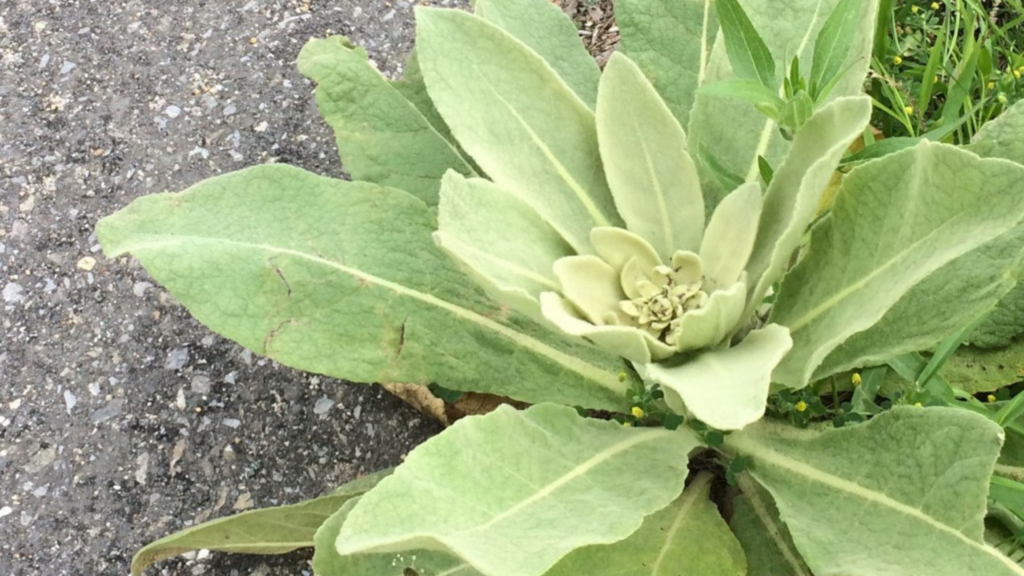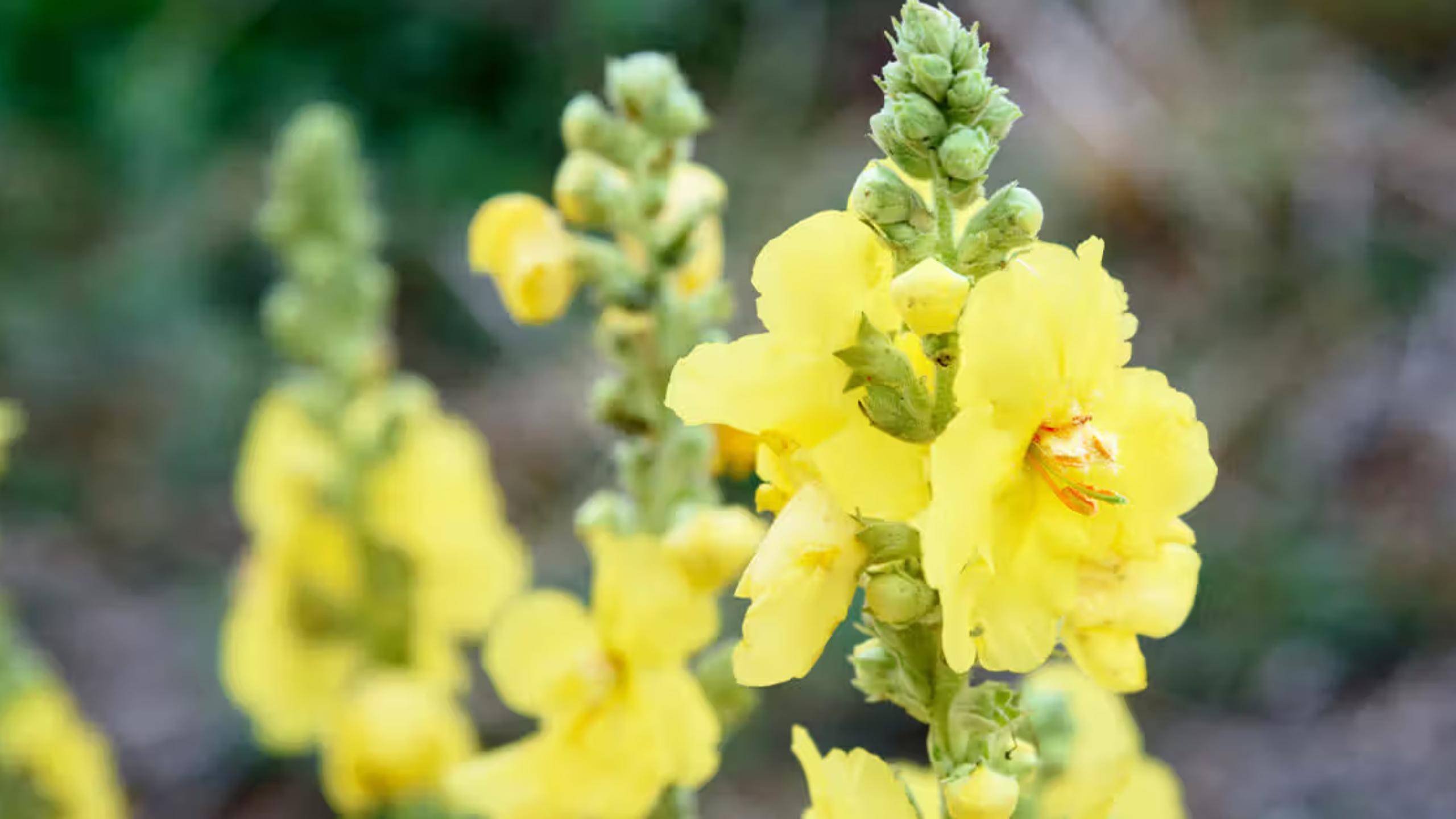Mullein (Verbascum thapsus) is a tall, woolly plant commonly found along roadsides and in open fields, celebrated for its remarkable medicinal properties for centuries. From its soft, velvety leaves to its vibrant yellow flowers and nutrient-rich roots, every part of this herb offers unique health benefits. Traditionally utilized in herbal medicine across various cultures, mullein serves as a natural remedy for a wide range of ailments, particularly those affecting the respiratory, digestive, and inflammatory systems. Let’s explore the incredible benefits of mullein and why this versatile herb should be a staple in your wellness toolkit.

Mullein leaves are perhaps the most recognized part of the plant, prized primarily for their ability to support respiratory health. These leaves contain mucilage, a gel-like substance that soothes irritated mucous membranes and acts as an expectorant, helping to expel mucus from the lungs.
One of the standout benefits of mullein leaves is their effectiveness in providing cough relief. Mullein tea is a popular remedy for dry, hacking coughs, bronchitis, and chest congestion. The natural expectorant properties of the leaves help loosen and expel phlegm, offering significant relief from respiratory discomfort. Additionally, the anti-inflammatory compounds present in mullein leaves can help relax bronchial passages, making them beneficial for individuals suffering from asthma and wheezing. Herbalists often recommend mullein leaves for lung cleansing and detoxification, especially for smokers or those exposed to environmental pollutants. To enjoy these benefits, you can steep mullein leaves into a soothing tea, often enhanced with honey for added flavor and benefits. Dried leaves can also be used in herbal steam inhalations to effectively clear nasal and chest congestion.
Mullein flowers, with their striking yellow color, are equally valued for their medicinal properties. Rich in flavonoids, saponins, and essential oils, these flowers possess potent anti-inflammatory and antimicrobial effects. One of the notable benefits of mullein flowers is their use in treating ear infections. Mullein flower oil has long been regarded as a remedy for earaches and infections due to its antibacterial and anti-inflammatory properties, making it a trusted choice for many seeking relief.
In addition to their benefits for respiratory health, mullein flowers can also provide pain relief. They may be used in topical applications to alleviate discomfort from minor injuries or inflammation, showcasing the versatility of this herb.
The roots of mullein, though less commonly highlighted, also offer health benefits. They are known for their potential to support digestive health and may help soothe digestive tract irritation.
Incorporating mullein into your wellness routine can be a natural way to enhance your health. Whether enjoyed as a tea, used in oils, or applied topically, this remarkable herb offers a wealth of benefits that can support your overall well-being. Embrace the healing powers of mullein and discover how this versatile plant can enrich your life! 🌱💚


https://t.me/s/Top_BestCasino/173
https://t.me/s/bEEFCaSiNo_OfFicIALs